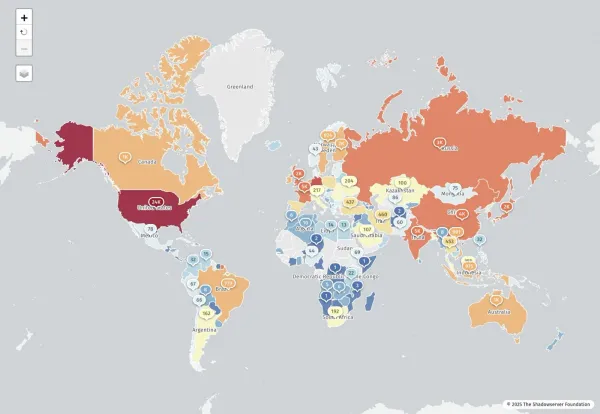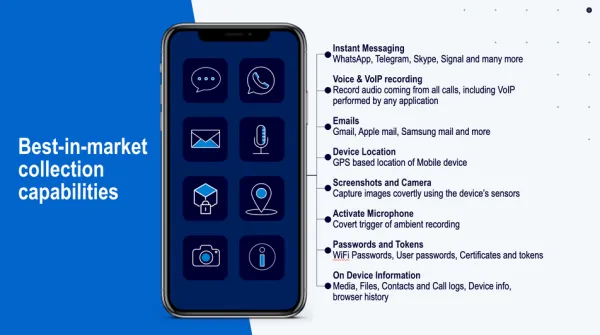Covenant Health Cyberattack: A Comprehensive Analysis of the 2025 Data Breach

Executive Summary
In May 2025, Covenant Health, a Catholic healthcare organization serving New England and parts of Pennsylvania, became the victim of a sophisticated ransomware attack orchestrated by the Qilin cybercriminal group. The attack, which began on May 18 and was first detected on May 26, 2025, compromised sensitive personal and medical information of 7,864 individuals and forced the healthcare system to shut down critical IT infrastructure across its entire network.
The Attack Timeline
Initial Incident
Covenant Health first experienced connectivity issues on May 26, 2025, though the actual breach occurred earlier on May 18, 2025. The organization immediately recognized these issues as the result of a "cyber incident initiated from an outside group" and took swift action to contain the threat.
Immediate Response
As a precautionary measure, Covenant Health immediately discontinued access to all data systems across its hospitals, clinics, and provider practices. This decisive action, while disruptive to operations, was crucial in preventing further damage and data exfiltration.
Attribution and Escalation
On June 24, 2025, the Qilin ransomware group claimed responsibility for the attack and posted proof of their breach on their dark web leak site. The evidence included internal and personnel files, confirming the extent of the compromise.
About Covenant Health
Covenant Health is a Catholic healthcare organization that operates multiple facilities across:
- Maine: St. Joseph Hospital in Bangor and St. Mary's Health System
- New Hampshire: St. Joseph Hospital in Nashua
- Regional Coverage: Various clinics and provider practices throughout New England and parts of Pennsylvania
The organization is recognized for providing values-based, not-for-profit healthcare services, emphasizing comprehensive regional health services including hospitals and nursing centers.
The Qilin Ransomware Group
Profile and Methods
Qilin (also known as "Agenda") is a sophisticated ransomware-as-a-service operation that has been particularly active in 2025. The group has claimed responsibility for 38 confirmed ransomware attacks in 2025 to date, with 261 additional unconfirmed claims.
Healthcare Targeting
The Covenant Health attack was part of a broader pattern of healthcare targeting by Qilin. In 2025 alone, eight of Qilin's confirmed attacks targeted healthcare organizations, including:
- Dermatologists of Birmingham
- Lake Washington Vascular (affecting 21,534 records)
- Central Texas Pediatric Orthopedics
- Covenant Health (affecting 7,864 records)
Data Compromised
Types of Information Affected
The breach exposed multiple categories of sensitive information, including:
- Personal Identifiers: Full names, addresses, dates of birth
- Financial Information: Social Security numbers
- Medical Records: Complete health information and treatment records
- Internal Data: Personnel files and internal organizational documents
Scale of Impact
A total of 7,864 individuals were directly affected by the data breach, making this a significant but not catastrophic incident in terms of scale when compared to other healthcare breaches.
Operational Impact
Service Disruptions
The cyberattack forced significant operational changes across the Covenant Health network:
- Complete shutdown of electronic health record systems
- Temporary suspension of some non-emergency services
- Implementation of manual processes for critical operations
- Delayed appointments and procedures
Recovery Efforts
Covenant Health engaged cybersecurity experts immediately to:
- Assess the full scope of the breach
- Restore system functionality safely
- Implement enhanced security measures
- Coordinate with law enforcement and regulatory agencies
Notification and Legal Response
Patient Notifications
In accordance with federal and state laws, written notifications were sent to all affected individuals starting July 11, 2025. These letters detailed:
- The nature of the incident
- Types of information potentially compromised
- Steps being taken to address the breach
- Resources available for affected individuals
Legal Investigations
Multiple law firms have initiated investigations into the breach, examining:
- Adequacy of Covenant Health's cybersecurity measures
- Compliance with HIPAA and state privacy laws
- Potential negligence in data protection
- Rights of affected individuals for compensation
Broader Context: Healthcare Under Siege
2025 Healthcare Cybersecurity Landscape
The Covenant Health attack occurred during a particularly challenging year for healthcare cybersecurity. While healthcare ransomware attacks rose by only 4% in the first half of 2025 (compared to a 50% average increase across all sectors), the healthcare industry remains a prime target due to:
- Critical nature of services (creating pressure to pay ransoms quickly)
- Valuable personal and medical data
- Often outdated IT infrastructure
- Limited cybersecurity resources
Regulatory Scrutiny
Healthcare data breaches face intense scrutiny from:
- Department of Health and Human Services (HHS)
- State attorneys general
- HIPAA enforcement agencies
- Congressional oversight committees
Preventive Measures and Lessons Learned
Immediate Security Enhancements
Following the attack, Covenant Health likely implemented:
- Enhanced network monitoring systems
- Improved backup and recovery procedures
- Advanced endpoint protection
- Employee cybersecurity training programs
Industry-Wide Implications
The attack highlights several critical needs across the healthcare sector:
- Investment in Cybersecurity: Healthcare organizations must allocate sufficient resources to cybersecurity infrastructure
- Incident Response Planning: Comprehensive response plans are essential for minimizing damage
- Staff Training: Human error remains a significant vulnerability vector
- Vendor Management: Third-party risks must be carefully managed
Recommendations for Healthcare Organizations
Technical Measures
- Multi-Factor Authentication: Implement across all systems and user accounts
- Network Segmentation: Isolate critical systems to limit breach impact
- Regular Security Assessments: Conduct penetration testing and vulnerability assessments
- Backup Strategy: Maintain offline, encrypted backups tested regularly
Operational Measures
- Incident Response Team: Establish dedicated cybersecurity response capabilities
- Vendor Risk Management: Thoroughly vet all third-party service providers
- Employee Training: Regular, updated cybersecurity awareness programs
- Communication Plans: Prepare template notifications for various breach scenarios
Patient Protection Steps
For Affected Individuals
Those who received notification letters should:
- Monitor Accounts: Regularly check all financial and medical accounts
- Credit Monitoring: Consider enrolling in credit monitoring services
- Medical Records Review: Request and review medical records for accuracy
- Identity Protection: Consider placing fraud alerts or credit freezes
Available Resources
Covenant Health has provided affected individuals with:
- Free credit monitoring services
- Identity protection resources
- Dedicated call center for questions and concerns
- Regular updates on the investigation
Looking Forward
Recovery and Rebuilding
The Covenant Health incident demonstrates both the vulnerability of healthcare systems and the resilience of organizations that respond appropriately. The healthcare system's immediate shutdown of systems, while disruptive, likely prevented a much larger breach.
Industry Evolution
This attack, along with others in 2025, is driving significant changes in healthcare cybersecurity:
- Increased federal funding for healthcare cybersecurity
- New regulatory requirements for incident reporting
- Enhanced coordination between healthcare organizations and law enforcement
- Development of industry-specific cybersecurity frameworks
Conclusion
The Covenant Health cyberattack serves as a stark reminder of the ongoing cybersecurity challenges facing healthcare organizations. While the organization's swift response limited the damage, the incident affected thousands of patients and disrupted critical healthcare services across multiple states.
The attack by the Qilin ransomware group reflects broader trends in cybercriminal targeting of healthcare infrastructure, motivated by both the critical nature of healthcare services and the valuable data these organizations maintain. As healthcare organizations continue to digitize their operations, the importance of robust cybersecurity measures cannot be overstated.
For patients and healthcare consumers, this incident highlights the importance of monitoring personal information and being prepared for potential data breaches. For healthcare organizations, it demonstrates the critical need for comprehensive cybersecurity programs that can both prevent attacks and respond effectively when breaches occur.
The ongoing investigation and recovery efforts at Covenant Health will likely provide valuable insights for the broader healthcare industry as it continues to strengthen its defenses against increasingly sophisticated cyber threats.
This article is based on publicly available information and news reports as of July 2025. Individuals who believe they may have been affected should contact Covenant Health directly or monitor official communications for the most current information.





